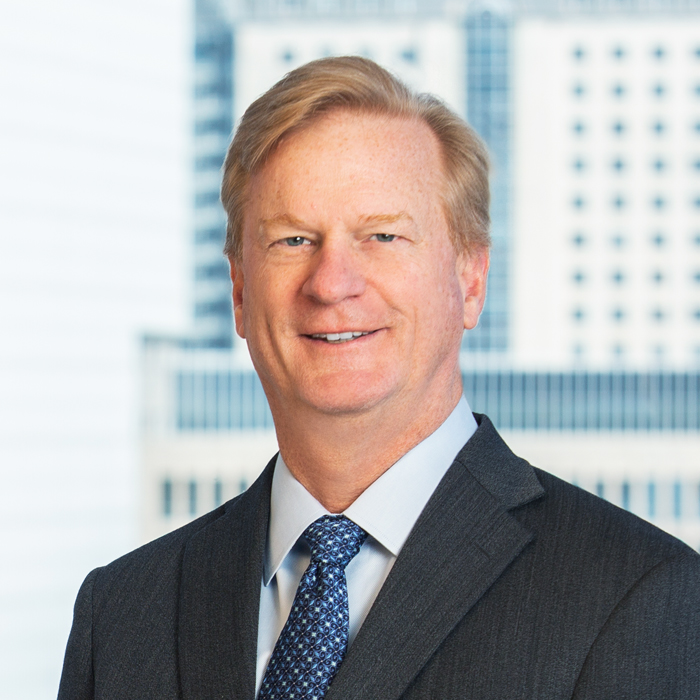On Friday, March 20, Jackson Walker presented a webinar discussing key provisions of the Families First Coronavirus Response Act that impact employers most. During the Q&A portion of the webinar, Healthcare partner Jeffery P. Drummond responded to questions related to healthcare providers, including the following:
|
Health care providers are exempted under the Act, but what is a “health care provider” under the FFCRA? Can an entity (such as a hospital or physician practice) be a covered entity? Does the term refer to the employer or the employee? The FFCRA permits an employer to exclude an employee who is a “health care provider” from the requirements to provide additional FMLA leave and sick time. In other words, while the employer covered by FFCRA must generally grant extended FMLA leave and sick time to its employees, it can refuse to grant the extra time and sick pay to employees who are health care providers and emergency responders. The FFCRA does not define “health care provider,” but instead references and adopts the definition in FMLA. The FMLA statute defines a “health care provider” to be a licensed doctor of medicine or osteopathy (an MD or a DO), but notes that the Secretary of Labor may issue regulations to include other providers in the definition. In the federal regulations implementing FMLA, the Secretary expanded the definition “health care provider” to include the following:
Thus, under the original FMLA regulations, “health care provider” included not only MDs and DOs, but also podiatrists, dentists, psychologists, optometrists, certain chiropractors, physician extenders such as nurse practitioners and physician assistants, and the others listed, and did not include regular nurses, medical technologists, physical therapists, or other employees working for an employer in the health care field, such as front office workers. The definition also only includes individuals, not entities, and is focused on the employee, not the employer. It is important to note that under the original FMLA, the reason a “health care provider” is defined is because employers may, in certain instances, require that employees seeking FMLA accommodation prove that they really are medically affected. The original FMLA regulations were drafted to define the type of “health care provider” a reasonable employer should be able to rely upon to opine regarding the employee’s medical condition. However, FFCRA uses “health care provider” in an entirely different context – the type of employee to whom an employer may deny extra FMLA leave or paid time off. In that context (what types of employees may be too important to give extra time off), the FMLA context (what types of outside experts should certify an employee’s medical condition) is inapplicable. Thus, as expected, the interim guidance offered by the Department of Labor, issued in the form of FAQs [(the “Guidance”) expanded the types of persons who are “health care providers” under FFCRA. For purposes of determining which employees may be excluded from the extended FMLA leave and paid sick leave, the Guidance defines “health care provider” to be “anyone employed at any doctor’s office, hospital, health care center, clinic, post-secondary educational institution offering health care instruction, medical school, local health department or agency, nursing facility, retirement facility, nursing home, home health care provider, any facility that performs laboratory or medical testing, pharmacy, or any similar institution, employer, or entity.” The FAQ’s go on to add individuals employed by entities that contract with healthcare facilities to provide services or maintain the facilities, anyone employed by any entity that provides medical services, makes medical supplies, or is involved in COVID-19 equipment, tests, drugs, etc. Finally, neither the FMLA nor the FFCRA defines who is an “emergency responder,” but the Guidance includes employees who are “necessary for the provision of transport, care, health care, comfort, and nutrition of such patients, or whose services are otherwise needed to limit the spread of COVID-19.” Including military, national guard, law enforcement and correctional officers, fire fighters, paramedics, nurses, 911 operators, and others. Additionally the Guidance allows governors of the various states to include additional employees to be included in the definition of a health care provider or emergency responder. The Guidance serves as an important interim step in understanding the current thinking of the Department of Labor, but final regulations may change these definitions; thus, employers should keep an eye out for the final regulations, which are anticipated to be issued soon. Thus, virtually any employee of any health care entity, or any person generally involved in the provision of healthcare services or the production of healthcare goods and products may be excluded from the additional FMLA leave and paid sick leave granted by the FFCRA. |
 Meet Jeff
Meet Jeff
Jeffery P. Drummond represents hospitals, physicians, laboratories, surgery centers, and other healthcare providers in transactional and regulatory matters. He is best known for his experience in HIPAA and medical record privacy, as well as other data privacy and security issues. Since 2002, Jeff has written a weblog on HIPAA matters at HIPAABlog.blogspot.com, and he regularly tweets about HIPAA @JeffDrummond. In recognition of his practice, Jeff has been recognized among The Best Lawyers in America in the area of Healthcare Law since 2018 and has been ranked in Texas for Healthcare by Chambers USA: America’s Leading Lawyers for Business.
Related Resources:
Please note: This article and any resources presented on the JW Coronavirus Insights & Resources site are for informational purposes only, do not constitute legal or medical advice, and are not a substitute for legal advice from qualified counsel. The laws of other states and nations may be entirely different from what is described. Your use of these materials does not create an attorney-client relationship between you and Jackson Walker. The facts and results of each case will vary, and no particular result can be guaranteed.

